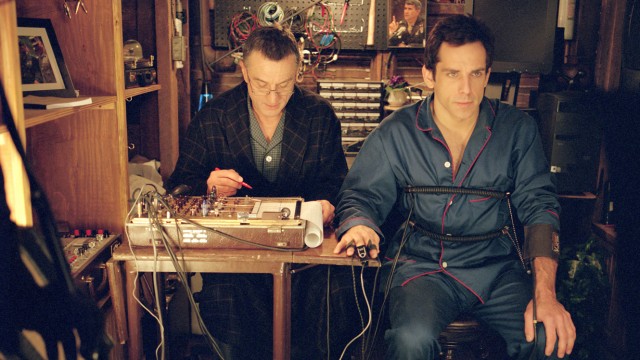It’s been bothering me for a few years. I never had a father hovering over me and threatening any and all prospective future partners, because my father died when I was six. (I sort of kind of had a boyfriend in those days, in your vague kindergarten sort of way, and I had also done the year before. But Dad never knew.) I grew up with all the evidence you needed that a woman was perfectly capable of taking care of herself. Not that Mom has ever remarried; she’s barely dated.
But of course you can’t live in this society without seeing fathers threatening daughters’ boyfriends, whether real or in potentia, in fiction. It’s so common that a request for examples pulled up dozens, if not hundreds. Probably there are even more, especially since someone suggested “all stories that feature a woman, circa 6000 BC to 1940ish.” I feel that to be a bit broad, honestly, and while it takes some thinking to pull up counterexamples before a certain point, at least Hamlet involves a child trying to control his mother’s sexuality instead?
It is true, however, that this is a trope that’s lingered long, long past the supposed liberation of women. Daughters in particular are still treated as property, though no few examples of sons were provided. If we look back to, say, Romeo and Juliet, it seems to me that the reason it’s considered such an enduring example of romantic love is that Juliet does not accept her parents’ choice for her at a time when an upper-class girl was a bargaining chip for her family’s alliances. Romeo, true, is sowing some wild oats, but he’d eventually have been expected to make an advantageous match. Juliet just wasn’t supposed to know what wild oats even were.
We live in an era where a TV show really was called 8 Simple Rules . . . For Dating My Teenage Daughter. It lasted three seasons—even after the death of its star. There’s a movie wherein Robert DeNiro gives a lie detector test to Ben Stiller to make sure that Ben Stiller is acceptable as a partner for a thirty-year-old woman. This is played for comedy, and while I’m sure we’re supposed to be on Ben Stiller’s side (I haven’t seen it), the fact remains that the plot revolves around the father’s expectation to be asked for permission to marry his adult daughter. There’s a commercial that I actually saw as I was writing this that flat-out says you should ask a father’s permission.
Mostly, consensus holds that these stories do take the child’s side. One of the several story arcs in 10 Things I Hate About You is the father’s acknowledgement that his daughters are their own people, and he cannot control them. Heck, one of them even had sex without his ever finding out. This is probably in part because we are at least paying lip service to the idea that these girls are their own people and in part because it makes for a better story. At least, we think it does these days; I’m not sure that was true four hundred and more years ago. However, while the stories hold that the children are right to eventually break away, they also tend to hold, at least in my opinion, that the parents are right to try to stop them.
I mean, I’m not completely irresponsible. If my child’s relationship appears to be toxic, I like to hope that I’d be on good enough terms with him to step in. However, I think he’d be more inclined to believe me if he knew I weren’t just trying to keep him away from romantic and sexual relationships across the board. If I freaked out to the same extent over a perfectly nice boy or girl of his own age who shared common interests in whatever-he’ll-be-interested-in as I did over someone twenty years his senior around whom he seemed to walk into doors a lot, what reason would he have to believe me about the latter?
Similarly, I hope to raise him to be a decent guy who respects consent and bodily autonomy. I don’t want him to be as dissolute and aimless as Benjamin from The Graduate; Mrs. Robinson does have an excellent reason for not wanting Elaine to date him, and it does make sense that she won’t reveal it. And frankly, the fact that he gets into the situation doesn’t say good things about Benjamin, either. I don’t want my son to be That Guy. But I also don’t want his future partners’ parents just assuming that he is.
Some of my male friends are already starting to threaten their daughters’ prospective partners. Not that these girls even necessarily have them; at least one person I know is the father of a son who says that he’d absolutely be that way if he had a daughter, without thinking about what it says about him and, in theory, about what his three-year-old son will be like. I think pop culture feeds them on the idea that they should be that way, and I think that’s unfortunate.
All of this is without even getting into your But I’m a Cheerleader sort of situation, where the child’s sexuality is itself at fault. At least that’s pretty much always shown as wrong these days, though it’s depressingly common for real kids. I can’t help wondering if there’s a correlation between parents who treat imaginary suitors this way and parents who kick their children with undesirable sexuality out of their houses.

